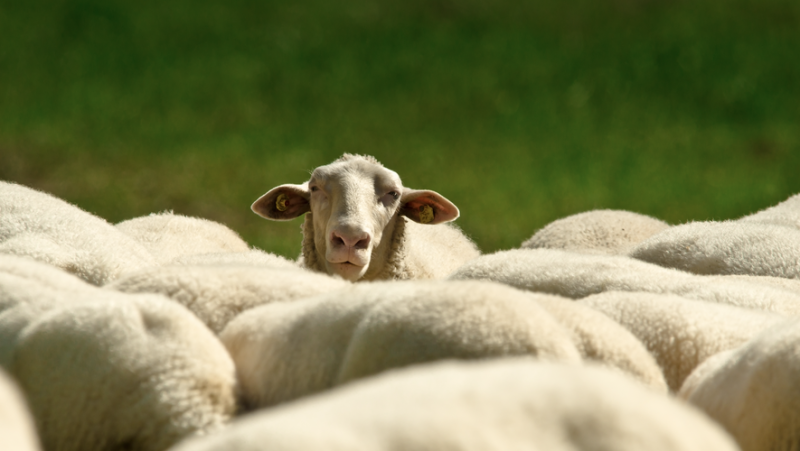“Blue tongue” disease arrives in France: first outbreak of ovine bluetongue discovered on a farm in the North

Une vaccination “volontaire sera proposée”. Illustration d'image Envato Elements – Brinjaschmidt
Despite preventive measures, an outbreak of a new type of bluetongue, which can be fatal for sheep, has been detected in France, in a sheep farm in the North, raising concerns among farmers.
This outbreak, "confirmed on 5 August by the health agency Anses in a sheep farm in Marpent (North), on the border with Belgium, is the first in France of this serotype, "the disease having previously been present only in the Netherlands, Germany and Belgium", indicates the prefecture of the North in a press release.
"It won't stop with just one case"
According to the French platform for epidemiological surveillance in animal health (ESA), in its latest bulletin, Luxembourg has recently been confronted with serotype 3, with an outbreak 15 km from the French border.
Bluetongue, which is not transmissible to humans, is already present in France, with serotypes 4 (in Corsica) and 8 (in mainland France). But French livestock have not developed any resistance to serotype 3, which they have never encountered.
“It won't stop with a single case, we're in for a bad time”, anticipates Simon Ammeux, president of FRSEA Hauts-de-France, regional federation of the FNSEA agricultural union, contacted by AFP.
“The future of our meat industry is at stake”
The FCO, also known as “blue tongue disease”, manifests itself by fever, respiratory problems, a hanging tongue or even the loss of pregnant pups.
It passes from an infected ruminant to an uninfected animal via biting insects, the Culicoides midges. It weakens animals, causes economic losses and disrupts international trade. Its detection does not lead to the euthanasia of animals, unlike bird flu.
“If we do not protect livestock today, the future of our meat industry is at stake“, Bruno Leclercq, leader of the Hauts-de-France and Normandy sheep association, worries to AFP. He recalls an epidemic of serotype 8 which, “in 2006-2007, had decimated entire farms”.
“Serotype 3 is a threat to the French sheep herd since it is a virus that induces clinical manifestations that can be quite significant […] Very clearly, there are sheep that are dying" in varying proportions from one farm to another, observed the director of the animal health laboratory of Anses, Stéphan Zientara, at the end of July.
A “voluntary" vaccination will be offered
Following the detection of this serotype in a Belgian outbreak close to France, the Ministry of Agriculture announced last week the creation of a "regulated" zone, from Pas-de-Calais to Moselle, where the movement of cattle, goats and sheep is subject to restrictions.
A "voluntary" vaccination will be offered and the vaccine "made available free of charge by the State", announced Monday the ministry.
The breeders concerned will have to place an order with a health veterinarian, who will receive the vaccine “from August 14 , and will be able to administer it to their animals themselves. A “second delivery will be made on August 31 ", according to the ministry.
This vaccination campaign was "initiated urgently with the aim of reducing clinical signs and preventing mortality within the regulated zone", he emphasizes.




